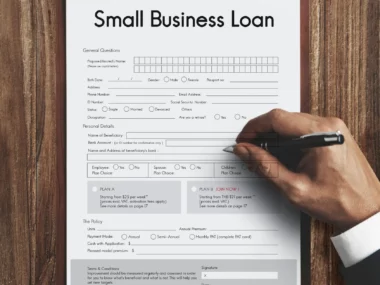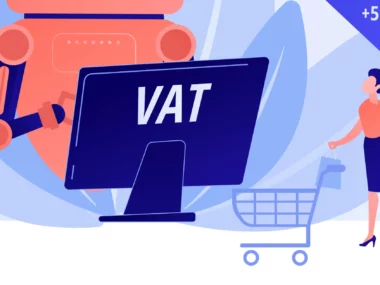Obtaining financing is a vital undertaking for businesses aiming to achieve growth, expand operations, or overcome challenging circumstances. In the UK, acquiring a business loan can be instrumental in securing the capital needed to drive progress, invest in essential equipment, recruit personnel, and fund various business endeavours.
However, the process of obtaining a business loan can appear overwhelming and intricate. This blog post aims to offer you a detailed guide on successfully navigating the journey of acquiring a business loan in the UK.
We will cover important steps, and requirements, and provide valuable tips to improve your chances of obtaining the desired financing.
What is A Business Loan in the UK
A business loan is a form of financing specifically designed for companies, provided by financial institutions to support their operational needs. These loans enable businesses to manage and cover various expenses essential to their operations.
Still talking about getting a business loan in the UK, it is important to state that obtaining a business loan offers the advantage of separating personal and business finances, a critical aspect as the business evolves, particularly when it comes to taxation. Additionally, depending on the specific loan agreement, business loans can limit personal liability in the event of business default or financial challenges during the loan term.
Business loans hold significant financial benefits as they facilitate meeting working capital requirements and fueling business expansion. Furthermore, they play a crucial role in maintaining a healthy cash flow, particularly during challenging economic periods. By securing a business loan, you can enhance your financial stability, fortifying your business against potential hardships that may arise during lean periods.
Requirements for Getting a Business Loan in the UK.
To qualify for a business loan in the UK, there are a few essential criteria you need to meet.
- Firstly, you must be at least 18 years old and successfully pass credit checks, demonstrating your ability to afford the loan repayments.
- Furthermore, residency in the UK is mandatory, and you must either have an existing UK-based business or intend to establish one that has been fully operational for a period of fewer than 36 months.
- If you are already running a business, be prepared to provide a credit report for your company as well. I hope this information proves useful to you! Feel free to reach out if you have any further inquiries.
Types of Business Loans in the UK
There are several varieties of business loans available to cater to different business needs. Let’s explore some of the most common types:
- Term loans: A term loan involves borrowing a specific sum of money that is repaid over a predetermined period, along with interest. This type of loan provides a lump sum upfront.
- SBA loans: The Small Business Administration guarantees these loans, which are offered by banks and other lenders. They come with favourable terms and conditions to support small businesses.
- Business lines of credit: A business line of credit allows you to borrow funds as needed, up to a predetermined credit limit. It offers flexibility, giving you access to capital whenever necessary.
- Equipment loans: If you require funds to purchase equipment for your business, an equipment loan can be the ideal choice. This type of loan specifically caters to acquiring necessary machinery or assets.
- Invoice factoring: Invoice factoring enables you to sell your outstanding invoices to a factoring company in exchange for immediate cash. It provides immediate liquidity for businesses with pending invoices.
- Invoice financing: Similar to invoice factoring, invoice financing allows you to leverage your invoices as collateral for a loan. This option provides a cash advance based on the value of your outstanding invoices.
- Merchant cash advances: A merchant cash advance permits you to borrow money based on your future credit card sales. It is a convenient option for businesses that primarily receive revenue through credit card transactions.
- Personal loans: While not specifically designed for businesses, personal loans can be utilized for business purposes. They can provide an alternative financing option, particularly for small businesses or startups.
Hint:
When selecting the most suitable loan type, consider your specific business requirements and financial circumstances. For instance, if you need funds for equipment, an equipment loan would be a prudent choice. On the other hand, a line of credit might be more appropriate for covering expenses during slower periods. Assess your needs and explore the loan options available to find the best fit for your business.
Checklist for Applying for Business Loan in the UK
When preparing your business loan application, it’s important to meet certain requirements. Here are some common criteria to consider:
- Personal and business credit scores: Typically, a good personal credit score (around 690 or higher) or excellent business credit is required for government-backed SBA loans or traditional bank small-business loans. A strong credit history demonstrates your ability to manage and repay debt.
- Annual revenue: Lenders want to see that your business generates a consistent stream of revenue. This showcases your business’s financial stability and ability to generate income.
- Years in business: Lenders prefer businesses with a track record of operation. Having a longer operating history demonstrates stability and experience.
- Business industry and size: Some lenders specialize in specific industries or prefer to work with businesses of a certain size. It’s important to find a lender that understands your industry and is willing to work with your business size.
- Business plan and loan proposal: All loan programs require a well-crafted business plan to accompany your loan application. Your business plan should include detailed financial projections, such as profit and loss statements, cash flow statements, and balance sheets. A solid business plan demonstrates your preparedness and provides insight into your business’s potential for success.
- Collateral or personal guarantee: Depending on the loan program and lender, you may be required to provide collateral or a personal guarantee to secure the loan. Collateral can be assets such as property, equipment, or inventory that the lender can claim if you default on the loan. A personal guarantee involves taking personal responsibility for repayment if the business cannot meet its obligations.
- Business and financial documentation: Lenders will request various documents to assess your financial standing and business viability. These may include tax returns, both personal and business, bank statements, and financial statements. These documents provide an overview of your financial health and ability to manage your business finances.
To ensure you have all the necessary documentation, here’s a checklist to follow when gathering materials for your loan application:
- Personal identification (such as driver’s license or passport)
- Business identification (business license, articles of incorporation, etc.)
- Comprehensive business plan
- Financial statements (profit and loss statements, balance sheets, cash flow statements)
- Tax returns (both personal and business)
- Bank statements
- Collateral documentation (if required)
By gathering and submitting these documents, you provide lenders with the necessary information to assess your loan application accurately.
Applying for Business Loans in the UK
To begin the process of applying for a business loan in the UK, there are a series of steps you should follow:
- Assess your eligibility: Prior to applying for a business loan, it is crucial to determine if you meet the lender’s eligibility requirements. Factors such as your credit score, business history, and revenue will be considered. Evaluating your eligibility beforehand saves time and ensures you focus on lenders who are likely to consider your application.
- Select a suitable lender: The UK market offers a variety of lenders providing business loans. It’s important to research and compare different lenders based on their interest rates, fees, and repayment terms. This allows you to find the most favourable terms for your specific business needs.
- Gather required documentation: As part of the loan application process, you will need to compile and submit certain documents. These may include financial statements, tax returns, and bank statements. Ensuring you have all the necessary paperwork ready in advance helps streamline the application process.
- Complete the application: Once you have chosen a lender and gathered the required documents, you can proceed with filling out the application form. The application typically seeks information about your business, such as its legal structure, industry, and revenue. Provide accurate and comprehensive details to facilitate a smooth review process.
- Await the lender’s decision: After submitting your application, the lender will carefully review it and make a decision regarding loan approval. The time taken for this evaluation process can range from several days to a few weeks, depending on the lender’s internal procedures and workload.
It is essential to note that the application process may vary slightly depending on the lender and the specific type of loan you are seeking. Some lenders might require additional documentation or have unique eligibility criteria. Additionally, it is wise to compare various lenders before making a final decision, ensuring you secure the most favourable terms available to you.
In conclusion, applying for a business loan can be a great way to get the funding you need to start or grow your business. However, it’s important to do your research and choose the right type of loan for your needs. You should also make sure you meet the lender’s eligibility criteria and have all the necessary documents before you apply. By following these steps, you can increase your chances of getting approved for a business loan and achieving your business goals.
I hope this blog post has been helpful! If you have any other questions or need further assistance, please don’t hesitate to ask in the comment box.




